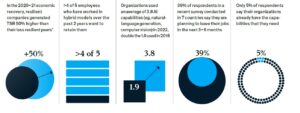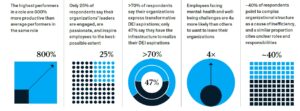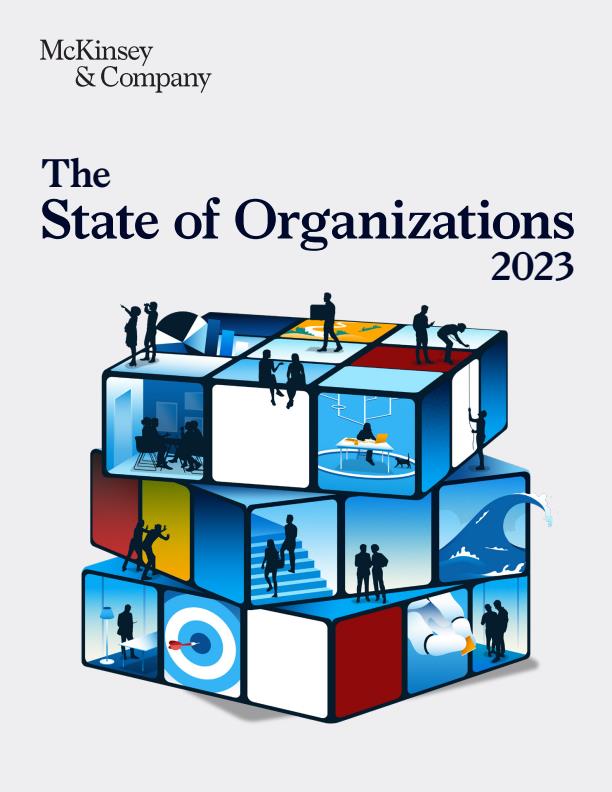Business leaders around the world are currently addressing not only economic volatility, geopolitical instability, and the lingering effects of the COVID-19 pandemic but also a range of organizational shifts that have significant implications for structures, processes, and people. The shifts include complex questions about how to organize for speed to shore up resilience, find the right balance between in-person and remote work models, address employees’ declining mental health,1 and build new institutional capabilities at a time of rapid technological change, among others.
To help CEOs and their leadership teams consider such questions, we have launched McKinsey’s The State of Organizations 2023 report. The report is an account of an ongoing research initiative that seeks both to pinpoint the most important shifts that organizations are grappling with and to provide some ideas and suggestions about how to approach them.
As part of the research, we conducted a survey of more than 2,500 business leaders around the world.2 Only half say their organizations are well prepared to anticipate and react to external shocks, and two-thirds see their organizations as overly complex and inefficient. We also spoke with business leaders to gather inspiring stories and best practices from beacons—organizations that have been able to adapt to recent economic and operational disruptions and forge new paths. Finally, we developed four points to consider in addressing the ten organizational shifts, leveraging the survey results, the quantitative research with executives, and insights from our work in the field and through existing McKinsey research.
The ten most significant shifts facing organizations today
1. Increasing speed, strengthening resilience.
2. ‘True hybrid’: The new balance of in-person and remote work.
3. Making way for applied AI
More: Full Report (92 pages)
Authors: Patrick Guggenberger, Dana Maor, Michael Park, and Patrick Simon



